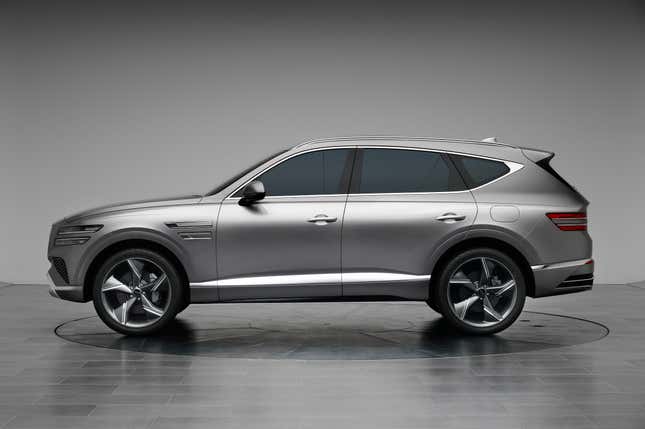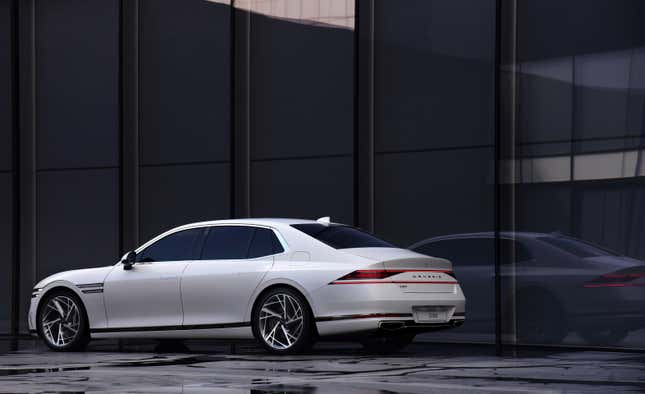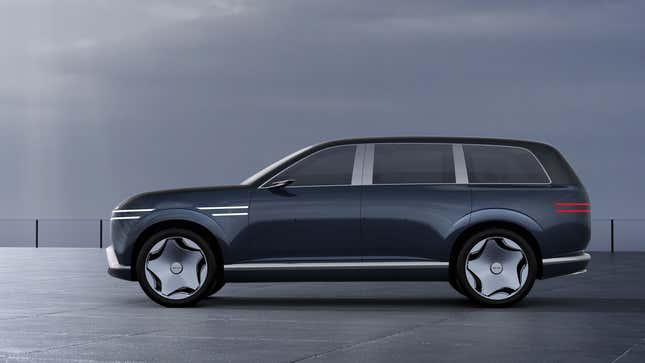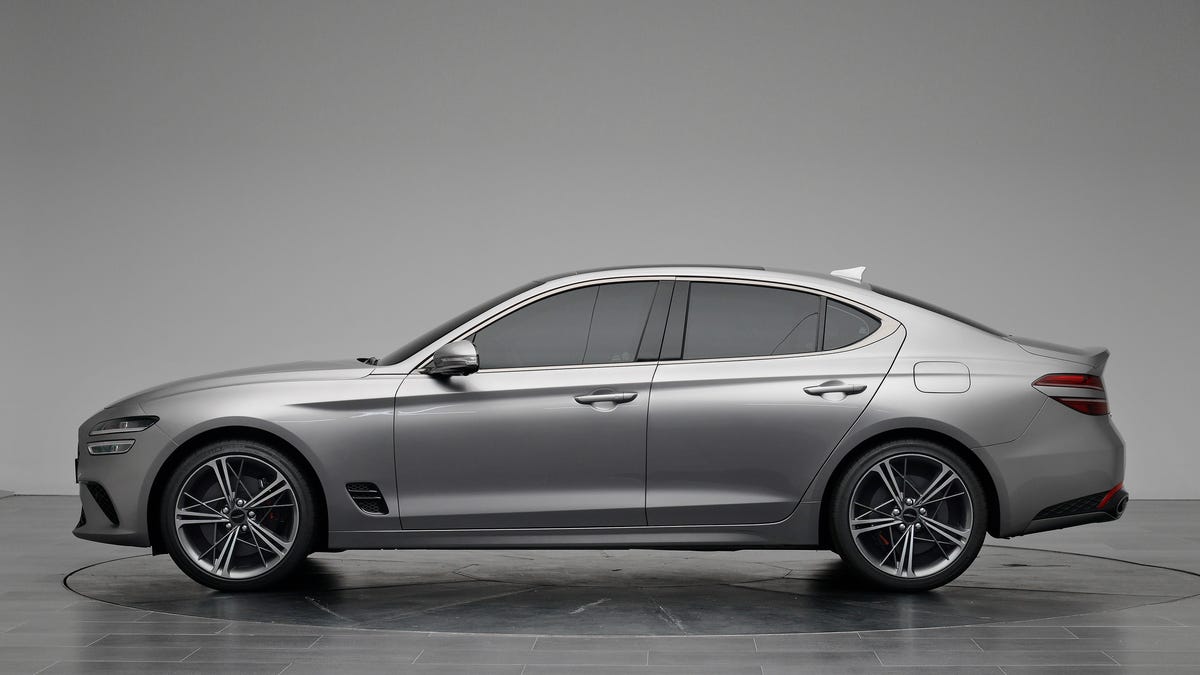I was recently driving a sleek Genesis G70 sedan and noticed that the 19” wheels on it looked like a stick-tortoise trying to escape from a starfish caught in a giant whirling asterisk. Compelled, I Googled the designs of other Genesis wheels and discovered that they were similarly complex, fractalized, and animal-inspired, resembling things like a pane of glass splintered by a lightning strike, an argent snowflake subsumed with a gear rotating around Sauron’s eye, a blistered starfish, or the sand-cast footprints of a sedge of cranes. All of this got me thinking, What the fuck is up with Genesis wheel design?
To find out, I reached out to Yougjun Heo, the upscale Korean brand’s exterior design team lead. Not surprisingly for a brand trying to distinguish itself in a sea of legacy luxury automakers, this temerariousness is intentional. “Genesis’ brand identity is defined by the following characteristics: progressive, distinctly Korean, and audacious,” Heo says, clearly emphasizing the final term. “Our wheel design exemplifies this philosophy by embracing bolder approaches compared to other brands, presenting customers with innovative technologies while incorporating Korean aesthetics.”

Wheels are a key element for communicating this positioning, and in making Genesis, as a young and relatively lesser known brand, stand out from other venerable marques. “Our team believes that wheel design is pivotal in differentiating Genesis from other brands,” Heo says. “It’s about creating a cohesive and striking visual identity.”
While it may occasionally look like the Genesis designers are, literally, throwing things at the wall to create motifs for their wheels, there is apparently an intentionality behind each design. In fact, according to Heo, there is even a set of rules for creating these rims.
“First, they must match the body design. Number two, they should visually appear large. And, third, the design message must be clear,” he says. This means that, no matter how sculptural or outré a wheel may be, if it doesn’t suit the nameplate, it won’t be used. “For dynamic models like the G70 and GV70, we use more aggressive and directional spoke designs to express dynamism,” Heo says. “In contrast, for models like our flagship G90, we opt for multi-spoke or dish wheels to convey elegance.”

Of course, Genesis wheels are not simply about aesthetics or alignment. They are also meant to provide relevant functionality.
“Our wheels offer significant functional advantages, including being lightweight while maintaining necessary rigidity. Additionally, the spoke cross-section is designed to effectively cool the brakes, enhancing overall performance.”
The purported utility of Genesis’ kooky wheel design will apparently continue apace as the brand moves deeper into the electric age. As I’ve told you previously in my diatribes on the topic, wheels can have a surprising impact on an EV’s efficiency.

“As we develop next-generation EVs, we’re focusing on wheel designs that improve cruising distance,” Heo says. “This includes reducing weight through forged wheel development and researching external rim cross-sections.”
All of this intentionality has not, yet, resulted in the creation of a factory Genesis Donk, but a bitch can dream. In the meantime, we want to offer true respect to the brand for helping maintain unique and captivating automotive design in an era of pervasive conventionality, and for recognizing the key role played by the one component of a car that comes closest to touching the ground.
“It’s no exaggeration to say that the exterior design of a vehicle is completed by the design of its wheels,” Heo says. “Think of it like wearing a finely tailored suit but pairing it with shabby shoes [gross!]—the overall look falls apart.”


